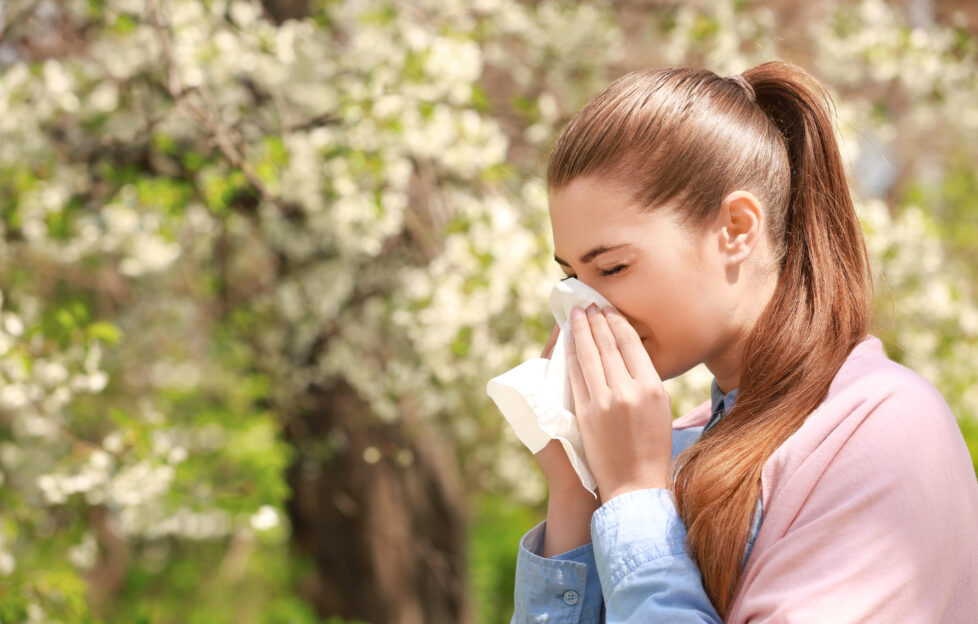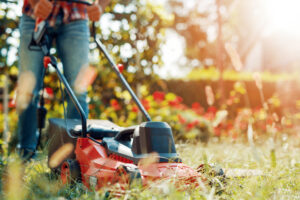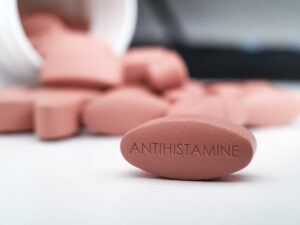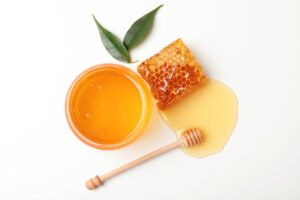Your Top 10 Hay Fever Questions Answered

As warm weather arrives and the pollen count increases, hay fever can make a lot of people want to stay inside.
Phil Day, superintendent pharmacist at Pharmacy2U said: “We know that this time of the year can be particularly challenging for people who suffer from hay fever symptoms, and we’d urge all those who are struggling to manage their symptoms to speak to their pharmacist or a local GP about products that can ease the impact.”
The experts at Pharmacy2U have answered some questions about hay fever to help you get ahead of the symptoms.
1. What is hay fever and why do we get it?
Hay fever, also known as allergic rhinitis, is a common allergic reaction that affects the nose, throat and eyes, and is caused by an allergic reaction to pollen. When a person with hay fever comes into contact with this allergen, their immune system overreacts and releases a chemical, called histamine, which triggers a range of symptoms.
2. Is there a cure for hay fever?
There is no known cure for hay fever but there are various treatments available to manage the symptoms and improve quality of life for people with hay fever. Antihistamines, nasal corticosteroids, and decongestants are commonly used but in more severe cases, your doctor can prescribe alternative treatments.
With the right management strategies, many people with hay fever can live normal, active lives and enjoy the outdoors without suffering from symptoms.
3. What are the symptoms of hay fever?
Symptoms of hay fever include headache or a feeling of pressure, sneezing, a runny or blocked nose, itchy, red, and watery eyes or a cough. It can also be a trigger for patients who have eczema or asthma.
4. How can you treat hay fever?
In most cases, medicines available without a prescription are the most effective. Antihistamines, which reduce the body’s reactions to allergens, are available in both tablet and liquid forms and can be used either as required or on a regular basis. Frequent sufferers may find daily treatment more beneficial to prevent symptoms before they start.
Eye drops and nasal sprays, which can be especially effective for eye or nasal symptoms, are also available over the counter and can be combined with antihistamines or used on their own. Anti-inflammatory steroid nasal sprays, such as beclomethasone, are very effective when used every day in the allergy season.
If you have hay fever symptoms that are not improving with over-the-counter medications, you should speak to your pharmacist who can advise on alternatives or if it is better to see a doctor.
5. Does hay fever treatment differ for children?
Treatment for hay fever in children follows the same principles as for adults, but there may be some differences in dosages and types of medications used. You should always speak to a pharmacist or doctor when considering the best treatments for a child.
Allergen avoidance can help to reduce symptoms in children. Wash your child’s face and hair when they come in from the outside to remove any pollen stuck on their hair or skin. Wraparound sunglasses can also protect their eyes, and smearing a small amount of Vaseline inside their nose can reduce pollen inhalation.
If their symptoms persist, make an appointment to see a doctor for further advice.
6. How do antihistamines work and is it safe to take them regularly?
Antihistamines work by blocking the action of histamine, the chemical released by your body in response to an allergen. Histamine is responsible for many of the symptoms of allergies, such as sneezing, itching, and a runny nose. By blocking histamine, antihistamines can help relieve these symptoms..
Taken in their recommended dose, antihistamines are safe to use regularly but you should discuss with your pharmacist or GP before taking them for a prolonged period of time.
7. When is the best time to take antihistamines?
The best time to take antihistamines depends on the type of antihistamine and your symptoms. Some antihistamines are designed to provide relief for 24 hours, while others are intended for use on an as-needed basis.
For antihistamines that are taken daily, it is recommended to take them at the same time each day to maintain a consistent level in the bloodstream. It is usually best to take them in the morning to help prevent symptoms throughout the day.
For antihistamines that are taken as needed, it is important to take them as soon as symptoms start to appear. These medications work quickly to reduce symptoms but can also cause drowsiness, so it is important to be cautious when driving or operating heavy machinery after taking them.
It is important to follow the instructions provided by the manufacturer and to not exceed the recommended dosage. If symptoms persist despite the use of antihistamines, consult a pharmacist or doctor for further advice.
8. Can I take more than one antihistamine?
Taking more than one antihistamine at the same time is generally not recommended without first consulting with a doctor or pharmacist. This is because some antihistamines can interact with each other and cause potentially serious side effects, such as increased drowsiness, dizziness, and confusion.
It is important to read the patient information leaflet of all medications and follow the recommended dosages and instructions provided by the manufacturer.
If you are experiencing severe allergy symptoms and your current antihistamine medication is not providing relief, talk to a doctor or pharmacist to determine the best course of action. They may recommend adjusting the dosage or switching to a different medication or combination of medications.
9. Are there any natural remedies for hay fever?
Yes, there are some natural remedies that may help alleviate hay fever symptoms, although the evidence for them is limited, and their effectiveness may vary from person to person. Although they may provide some relief, they should not be used in place of medical treatments.
Using saline nasal irrigation can help to flush out allergens in the nasal passages.
Some people believe that consuming local honey, which contains small amounts of pollen from local plants, can help the body build up a tolerance to pollen and reduce hay fever symptoms.
Studies have suggested that probiotics, which contain beneficial bacteria, may help to reduce allergy symptoms.
The antioxidant vitamin C found in many fruits and vegetables has been shown to have anti-inflammatory properties that may help to reduce allergy symptoms.
People with severe or persistent hay fever symptoms should speak to their pharmacist or doctor to get the best advice on treatments for them.
10. At what point should I go to a doctor about my hay fever?
If your hay fever symptoms are not improving with over the counter treatments or are interfering with your daily activities and quality of life you should consider making an appointment with your doctor.
In addition, it is important to seek medical attention if you have other medical conditions that may be affected by hay fever, such as asthma or chronic obstructive pulmonary disease (COPD), as hay fever can worsen these conditions.
If you experience severe symptoms such as difficulty breathing, wheezing, or chest tightness, you should also seek medical attention, as these may be signs of a more serious allergic reaction. A doctor can help to determine the cause of your symptoms, whether it is hay fever or another condition, and provide appropriate treatment.
Preventative measures
Hay fever only occurs when the allergen (pollen) is present, and there are some actions you can take to reduce your exposure to pollen and therefore your chance of suffering with symptoms.
- Placing a small amount of Vaseline around the edge of your nostrils to trap pollen.
- Wear wraparound sunglasses to stop pollen getting into your eyes.
- Stay indoors whenever possible and keep windows and doors shut if you can.
- After going outside, shower and change your clothes to wash off pollen.
- In the house, it is important to vacuum regularly and dust with a damp cloth, and you could buy a pollen filter for the air vents in your car and a vacuum cleaner with a HEPA filter.
- Avoid cutting grass or walking on grass when possible.
- Avoid having fresh flowers in the house that could release pollen.
- It can also help to avoid drying clothes outside, as they will catch pollen whilst drying; and be aware that pets can carry pollen indoors after they’ve been out.
These tips, as well as medication that can be purchased from a pharmacy, can ease symptoms significantly for most people. If you have tried medication and your symptoms are not improving, or are getting worse, you should make an appointment to see your GP.
Images by Shutterstock.










